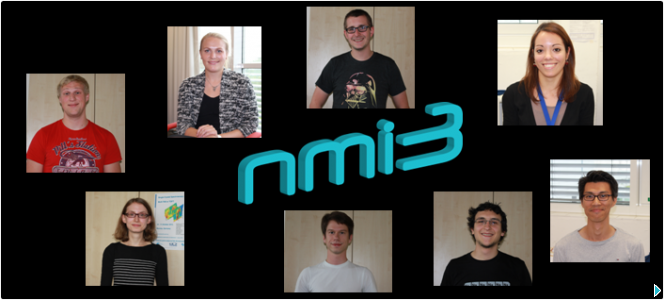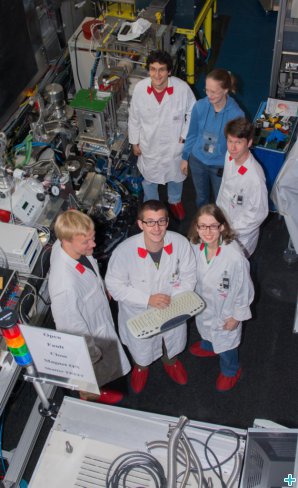The 2013 JCNS School – conversations with participants
The 17th JCNS Laboratory Course on Neutron Scattering
By Inês Crespo, Information Manager, 11/10/2013
Last September 55 students have met for two weeks for the 17th JCNS Laboratory Course on Neutron Scattering. Thanks to NMI3 support a number of students from diverse European institutions could attend the school.
A bit of history
Reiner Zorn from Jülich Centre for Neutron Science (JCNS) has been organising the school for over 10 years to make sure that everything runs smoothly. We have talked with him to learn all about the JCNS Lab Course . The course was first created in 1997, by then called “Neutronenpraktikum” and was initially targeted to students of the universities of Aachen and Münster in Germany. By then, both theoretical lectures and practical experiments took place in Jülich. In 2000 the organisers thought it was time to open up the course to foreign participants and thus switched the teaching language to English. However these universities organise still today the school together with JCNS. Due to the reactor shutdown, in 2006 the school practical lessons were held for the last time in Jülich. Since 2007 students move to Garching for the second week of the lab course, which takes place at the FRM II neutron source.
The participants’ background
Neutron scattering techniques can be valuable tools to diverse scientific fields of research other than physics. In fact, a large number of participants are currently chemistry students to whom their professors recommended to attend the school (for details please watch our video).
While the school is open to anyone who is willing to learn about neutron scattering, the main target are master students. Given that the talks are delivered by JCNS staff who are experts in a range of research fields, students can receive a broad overview of scientific possibilities offered by neutron scattering techniques and therefore make a better informed decision on their future career path, namely on a specific PhD topic to follow.
Due to the high number of applications, the school has a selection procedure. To be able to apply, interested applicants need to send their curriculum vitae, explain their interest in learning about neutron scattering, and are encouraged to provide recommendation letters. NMI3 grants made it possible for European students from outside Germany to attend the school.
The school programme
Over the last years the school has developed to become more user-oriented so that students can better understand how to apply neutron scattering in their own research studies. In this view, lectures are now more educative with a series of theoretical-practical exercises that certainly stimulate learning. These were held at Forschungszentrum Jülich over the first week of the course.
For the second week the students moved to Garching where they had the opportunity to take part of experiments in the FRM II neutron source. To make the best out of their time in the neutron guide hall, students were divided in 11 small groups of five people. The students we talked with were very glad of having the opportunity of assisting to “real science”.
And because the social part of these kinds of events is also important, not only the school organisers planned funny welcome and farewell parties, but many spontaneous events also occurred over the two weeks such as guided tours in the research centre, football games, and other activities.
The future of the JCNS Lab Course
The JCNS Lab Course provides a good overview of the possibilities provided by neutron scattering techniques. These tools can be very helpful for researchers from many diverse scientific fields and it is therefore important to continue providing this course. NMI3 definitely supports this idea!



